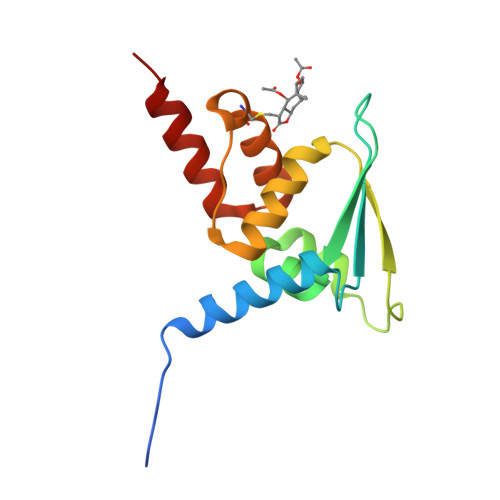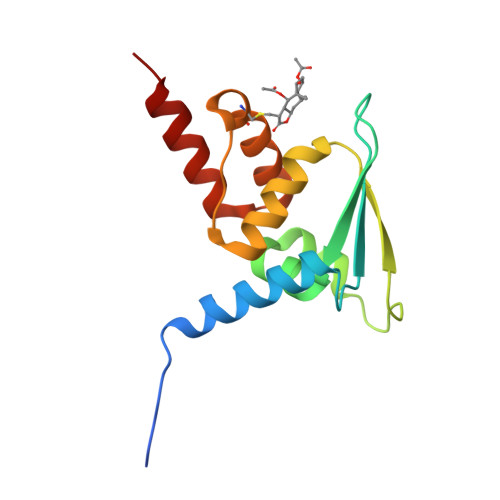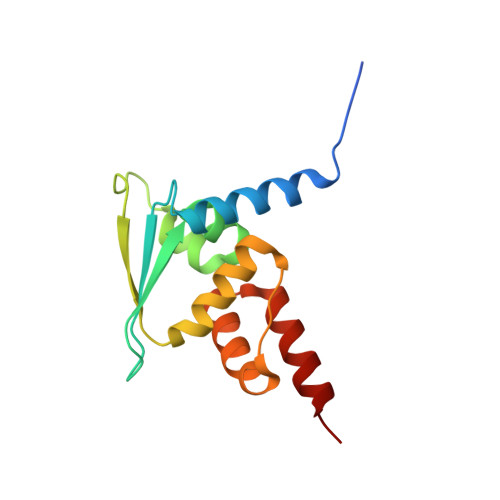Britanin Ameliorates Cerebral Ischemia-Reperfusion Injury by Inducing the Nrf2 Protective Pathway.
Wu, G.Z., Zhu, L.L., Yuan, X., Chen, H., Xiong, R., Zhang, S.D., Cheng, H., Shen, Y.H., An, H.Z., Li, T.J., Li, H.L., Zhang, W.D.(2017) Antioxid Redox Signal 27: 754-768
- PubMed: 28186440
- DOI: https://doi.org/10.1089/ars.2016.6885
- Primary Citation of Related Structures:
5GIT - PubMed Abstract:
Oxidative stress is considered the major cause of tissue injury after cerebral ischemia. The nuclear factor erythroid 2-related factor 2 (Nrf2) pathway is one of the most important defensive mechanisms against oxidative stresses and has been confirmed as a target for stroke treatment. Thus, we desired to find new Nrf2 activators and test their neuronal protective activity both in vivo and in vitro. The herb-derived compound, Britanin, is a potent inducer of the Nrf2 system. Britanin can induce the expression of protective enzymes and reverse oxygen-glucose deprivation, followed by reperfusion (OGD-R)-induced neuronal injury in primary cortical neurons in vitro. Furthermore, the administration of Britanin significantly ameliorated middle cerebral artery occlusion-reperfusion (MCAO-R) insult in vivo. We report here the crystal structure of the complex of Britanin and the BTB domain of Keap1. Britanin selectively binds to a conserved cysteine residue, cysteine 151, of Keap1 and inhibits Keap1-mediated ubiquitination of Nrf2, leading to induction of the Nrf2 pathway. Britanin is a potent inducer of Nrf2. The complex crystal structure of Britanin and the BTB domain of Keap1 help clarify the mechanism of Nrf2 induction. Britanin was proven to protect primary cortical neurons against OGD-R-induced injury in an Nrf2-dependant way. Additionally, Britanin had excellent cerebroprotective effect in an MCAO-R model. Our results demonstrate that the natural product Britanin with potent Nrf2-activating and neural protective activities both in vitro and in vivo could be developed into a cerebroprotective therapeutic agent. Antioxid. Redox Signal. 27, 754-768.
Organizational Affiliation:
1 Department of Phytochemistry, School of Pharmacy, Second Military Medical University , Shanghai, P.R. China .



















